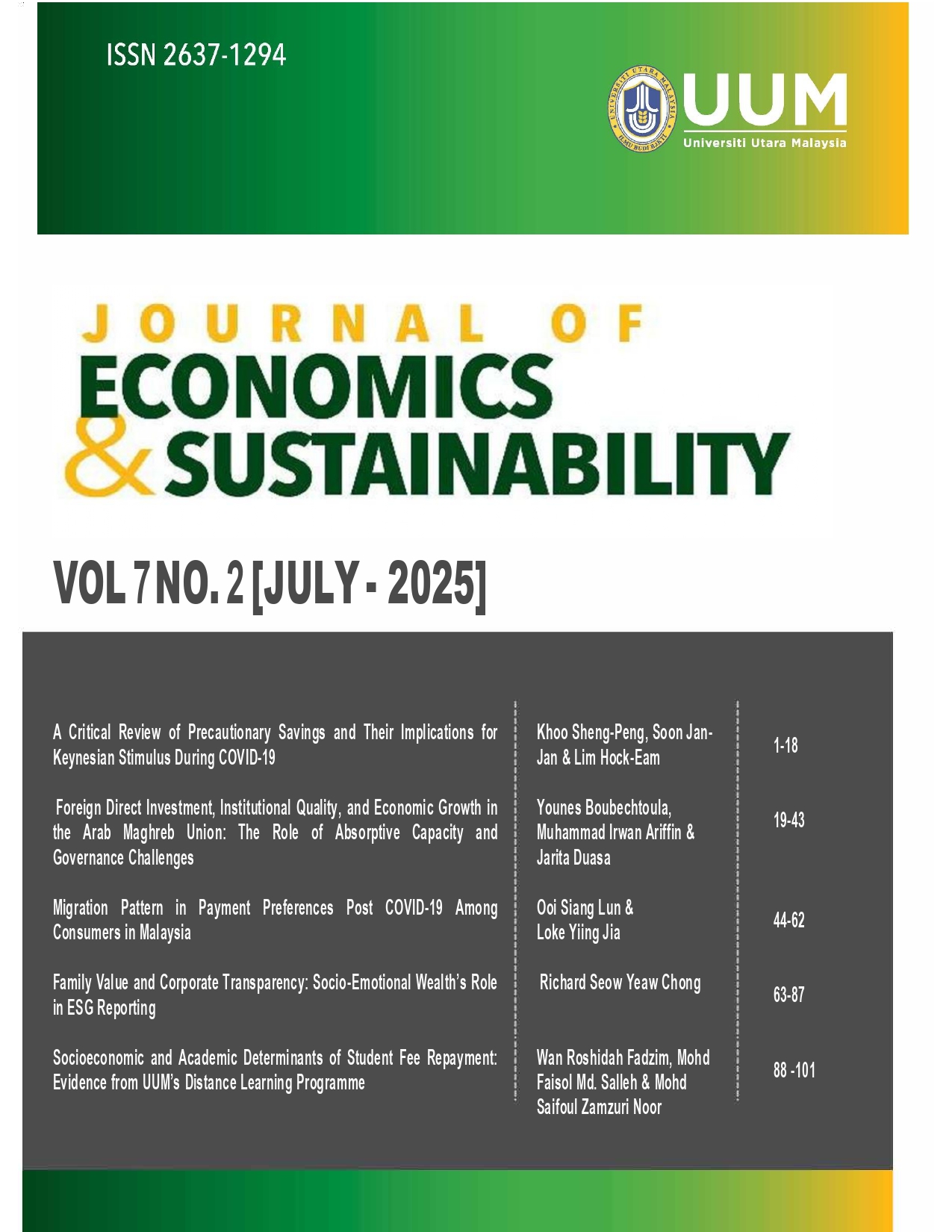A CRITICAL REVIEW OF PRECAUTIONARY SAVINGS AND THEIR IMPLICATIONS FOR KEYNESIAN STIMULUS DURING COVID-19
DOI:
https://doi.org/10.32890/jes2025.7.2.1Abstract
During Coronavirus Disease 2019 (COVID-19) crisis, policymakers rely on Keynesian-economic stimulus packages (ESP) to help economic agents in surviving from economic stagnation. However, precautionary savings phenomenon can affect ESP effectiveness negatively over time according to precautionary savings theory and permanent income hypothesis, which is greatly underexplored in the literature. Thereupon, this study takes initiative to examine how unprecedented non-pharmaceutical interventions (NPIs) that are induced by the pandemic cause to the precautionary savings. A critical review was employed and the results highlighted that NPIs, heightened economic uncertainty, long-term income expectations, structural financial constraints, and resultant behavioural shifts are key factors of the precautionary savings behaviour’s outbreak. Besides, degree of economic uncertainty—shaped by severity and duration of the NPIs, future employment prospects, and perceived long-term income shocks are key factors in determining the impact of precautionary savings behaviour on demand transmission mechanism of the Keynesian-ESP. This study concludes that ESP has generate diminishing marginal utilities of consumption and investment relative to saving. These findings call attention to practitioners for a re-examination of Keynesian frameworks by integrating behavioural insights from the other theories, while suggesting policymakers to implement complementary strategies, targeted fiscal measures, and clear communication in alleviating uncertainty and stabilizing lifetime income expectations during crises. Due to some methodological and theoretical limitations, the precise impact of precautionary savings behaviour on the effectiveness of Keynesian-ESP remains ambiguous in this critical review. Thereupon, future research should adopt more robust empirical methodologies and structural models that incorporate longer time horizons and finer micro-level data.
Downloads
Published
Issue
Section
License
Copyright (c) 2025 Journal of Economics and Sustainability

This work is licensed under a Creative Commons Attribution 4.0 International License.






